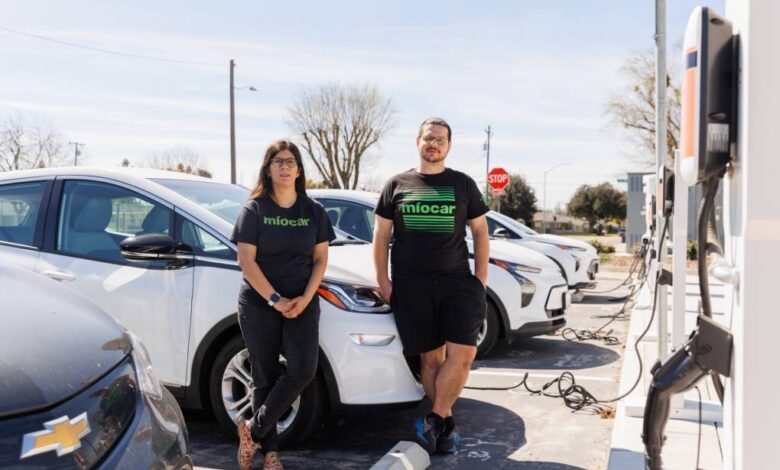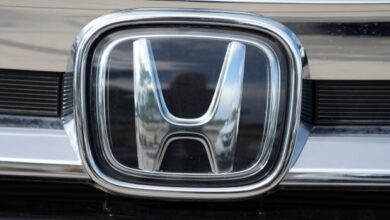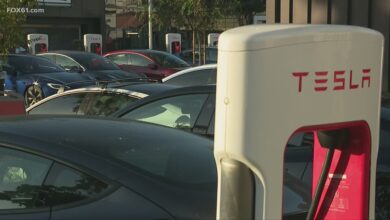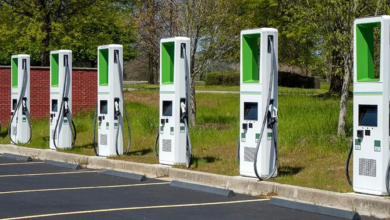How Californians With Lower Incomes Can Buy or Rent Electric Cars

So organizations and the state are targeting these places to level the playing field.
“Transportation is a human right, and everyone should have access to transportation,” said Gloria Huerta, Míocar’s chief operating officer.
Huerta sees her work — decreasing tailpipe emissions in polluted communities — as social justice.
“We let the communities that have historically been left behind have access to resources that normally wouldn’t be given to them,” Huerta said.
State officials are trying to address this problem through financial incentives to buy cars, funding charging infrastructure and community efforts like Míocar.
“Programs like Míocar are really important for educational purposes, in addition to the fact that folks get to ride in, potentially drive, get a feel for how these vehicles can work,” said Lisa Macumber, a branch chief at the California Air Resources Board who runs state incentive programs for clean cars.
David Reichmuth, an engineer at the Union of Concerned Scientists, along with the equity-focused Greenlining Institute, found that about 20% of cars on the road contribute more than 70% of dangerous smog. They’re older cars powered by gas and diesel. Those cars and a greater portion of the pollution they make are more concentrated in communities with low income and places where Latino and Black people live.
“That’s where we can get the biggest impact in terms of both air pollution and climate change,” Reichmuth said. “Getting tailpipes out of low-income communities is the best way to reduce that pollution burden.”
Below are organizations and state programs working to do that.
What California programs can help me buy or rent an EV?
Míocar
What: Míocar is a nonprofit electric vehicle car-sharing service.
Where: Richmond, Stockton, Tulare and Kern counties, Escalon.
Requirements: 21+, valid driver’s license (this includes AB60 license holders), relatively clean driving record and a valid credit, debit or bank card.
Cost: $4/hour or $35/day, which includes charging, maintenance, insurance and 24-hour roadside assistance.
EVs for Everyone | EVs Para Todos
What: EVs for Everyone provides personal advisers who can coach people to find the right vehicle and identify which rebates they can apply for.
Where: Santa Cruz, San Benito, Monterey, San Luis Obispo, Santa Barbara and Ventura counties.
Requirements: EVs for Everyone prioritizes historically underserved communities.
Access Clean California
What: Access Clean California helps people apply for clean energy benefits, including savings for vehicles and can provide case management to walk through the process.
Where: Statewide.
Requirements: Clients must have low- to moderate income.
Clean Cars 4 All
What: Californians can buy or lease a hybrid, plug-in hybrid or EV with a state program meant to replace older, highly polluting gas vehicles. People can also use credits to purchase an e-bike or public transit voucher.
Where: Currently available in these five air districts:
The program is set to expand and be offered statewide later this year and includes financing options.
Requirements: Must be income-eligible (making at least 300% of the federal poverty level, which is $93,600 for a family of four in 2024), reside in a participating air district (for now) and have a vehicle to scrap. There may be more specific requirements depending on your air district.



